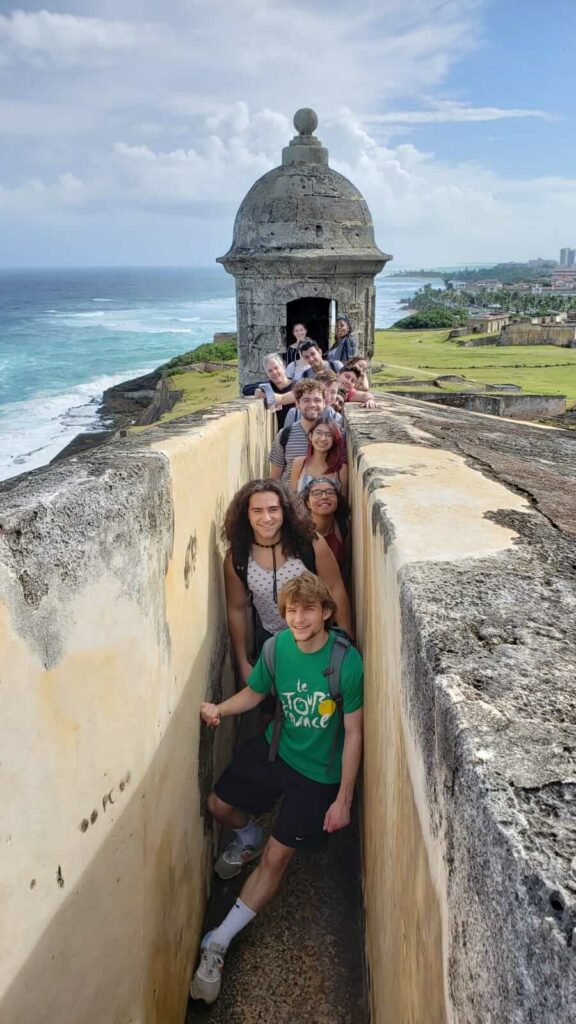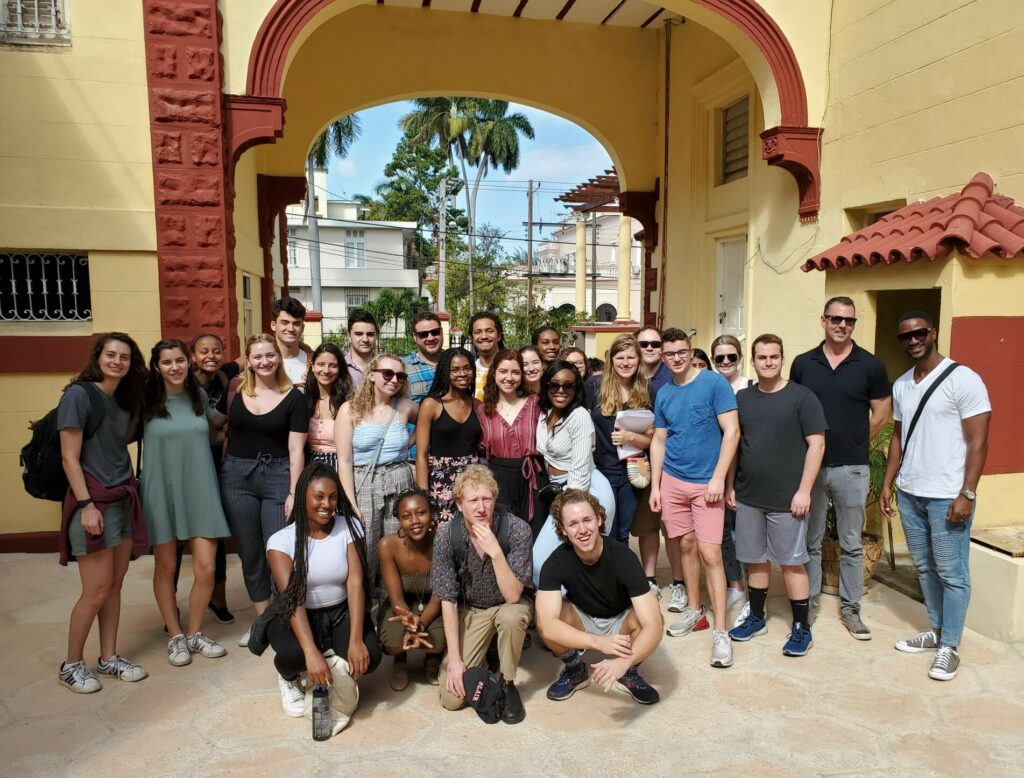Qualifications to be a Faculty Leader
To lead a faculty-led study abroad course, the faculty member must check the department’s and university’s requirements since they may vary depending on your school or area of study.
The most common attributes are: holding a full-time faculty status and having previous experience in international travel or co-leading a previous study abroad trip.
Other qualifications that might be relevant for the role of faculty leader are the following:
Study Abroad Program Leader Certification
Valencia College, Florida, offers a study abroad program leader certification that is very interesting if this is your first time being a faculty leader. In this course, they prepare faculty members to develop and lead meaningful short-term study abroad experiences, and its length is 21 hours.
Global Inclusive Leadership Certificate
This Diversity Abroad Global Inclusive Leadership Certificate program equips participants with the inclusive leadership abilities and global competencies needed to succeed in their communities, on campuses with diverse student bodies, and on international work teams.
Active Learning Certificate
In this course, faculty members will learn how to engage students more deeply in the learning process through meaningful lessons while encouraging reflection on student understanding.
It’s a very relevant skill to develop, especially when you are in a foreign country and the way of teaching is entirely different from your usual classroom.
Role and Responsibilities of the Faculty Leader
The Faculty Leader leads the academic aspects of the program and provides student support throughout the program cycle. In addition to the standard duties of teaching a course at your school or university (syllabus development, textbook selection, grading, evaluations, etc.), the roles and responsibilities of the Faculty Leader include:
Role: Organizer/ Planner/ Student support
Faculty leaders are responsible for organizing and planning the trip, which includes submitting the program proposal and selecting activities, among other things.

Responsibility: submission of the program proposal, which includes an itinerary, budget, and risk assessment
For all faculty-led programs, faculty leaders must submit a course proposal outlining the course description and a syllabus integrating how site visits enhance learning objectives, the trip’s itinerary, the budget, and the risk assessment.
Having a provider like Alandis Travel helps make the preparation easier since providers are knowledgeable. They know exactly how many activities and visits you should include in your itinerary and help you stick to a budget your students can afford.
Responsibility: selection of academically relevant activities
Selecting the perfect activities and visits that best suit your learning objectives is also part of the faculty leader’s responsibilities. If you have a provider, they are of great help. They can suggest the ideal activities since they know the destination best, and you can work with them to create the perfect itinerary for your trip.
Role: marketer
Once your proposal is approved, it’s time to start promoting and recruiting students, an essential part of a study abroad trip. Being as proactive as possible at this stage can attract many students.
Responsibility: active participation in program promotion and recruitment
The most crucial recruitment activities are those where you speak face-to-face with students in various venues. It’s an excellent opportunity to discuss the benefits of the trip and how it ties into their study programs.
But there are other ways of promoting your trip; a few ideas include print materials, classroom visits, social media, etc.
Responsibility: interviewing and selection of student participants following the application deadline
Reviewing the students’ applications is also part of the job. Make sure that the students who have applied to your study trip fit in perfectly with the curriculum and personality-wise with the rest of the participants. Interviewing them is highly beneficial to get to know them, answer their questions, and see if they will be a good fit for the program.
Role: motivator
Sometimes during study abroad trips and even before departure, faculty leaders must lift the mood and inspire the students.
Responsibility: Leading pre-departure activities
Leading pre-departure activities can be either the faculty leader’s responsibility or can be provided by a third party. They include orientation meetings and preparatory seminars.
- It would help if you gave a short presentation in orientation meetings about the trip, what to expect, dates, etc. They are the best way to make sure that all your students are on the same page and that all their questions that they may have about the trip get answered.
- Preparatory seminars allow your students to learn about what they will experience on their trip.
Role: leader
As the name indicates, faculty leaders lead students and are the point of reference for day-to-day challenges, both before and during the program.
Responsibility: serving as the primary point of contact for students
The Faculty Leader is also the main point of contact for students requiring academic, cultural, and personal guidance before and during the course.
They should also work with local providers to prepare for health and safety issues abroad, respond to emergencies throughout the program, and educate students on local customs and practices that affect individual and group health and safety as well as security.
Role: counsellor
Going on a study trip to a foreign country dramatically impacts students’ lives; they are exposed to different cultures and ways of living. Faculty leaders must be prepared to deal with culture shock and homesickness from their students.
Some faculty-led programs last three months; students get the study abroad blues. That is why being an active listener and giving good advice is key while dealing with these feelings.

What are NOT the responsibilities of the faculty leader?
There are responsibilities related to a faculty-led trip outside the faculty leader’s hands. A few of them are part of the study abroad department’s job or your study abroad provider’s (if you are working with one).
Study Abroad Department
Approval of program proposals by departments
The first step for a study abroad program is getting approval from your academic department before submitting your proposal. Then, (usually) the study abroad department will review and approve proposals.
Ensuring faculty salaries with benefits
The study abroad department is also responsible for appointments and salaries for teaching assistants and student associates if you have them.
Academic advising and registration of students on courses
The academic advising and the registration of students on courses are the responsibility of the study abroad department and typically fall outside the remit of the faculty leaders.
Study Abroad Provider
As mentioned above, educational institutions need to delegate tasks to organize their groups’ trips to study abroad providers (see here: benefits of working with a provider) with things such as pre-departure materials, like student handbooks, meetings, and even orientations in your destination.
Study abroad providers are also helpful during the planning process, offering itinerary organization and support to plan activities that will meet your academic goals.


